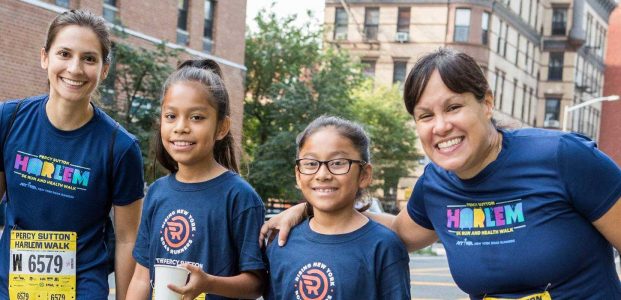Success Stories
Success stories that show the real-life positive impact of the Whole Family Approach on families and service providers.
 Solis Family When Elia, mother of the Solis family, heard Unidos was offering a path to obtain her GED diploma entirely in Spanish, she was very excited. Enrolling in classes in 2018,… Continue Reading
Solis Family When Elia, mother of the Solis family, heard Unidos was offering a path to obtain her GED diploma entirely in Spanish, she was very excited. Enrolling in classes in 2018,… Continue Reading Anderson Family As a 21-year-old father of two, Darnell Anderson is a Stronger Families Strong Fathers empowerment group member. Athletically skilled in basketball, he's also played in our adult league for two… Continue Reading
Anderson Family As a 21-year-old father of two, Darnell Anderson is a Stronger Families Strong Fathers empowerment group member. Athletically skilled in basketball, he's also played in our adult league for two… Continue Reading Mentoring in a COVID-19 World The Arthur Project continued to make mentoring a priority in the COVID-19 pandemic. Learn how they strengthened relationships in a virtual world. Continue Reading
Mentoring in a COVID-19 World The Arthur Project continued to make mentoring a priority in the COVID-19 pandemic. Learn how they strengthened relationships in a virtual world. Continue Reading Family Success Story – Overcoming Crisis to Achieve Stability Jasmine and her children’s story is one of strength and dedication. In 2017, Jasmine was an expecting mother with two young children, living out of her car and struggling to… Continue Reading
Family Success Story – Overcoming Crisis to Achieve Stability Jasmine and her children’s story is one of strength and dedication. In 2017, Jasmine was an expecting mother with two young children, living out of her car and struggling to… Continue Reading Impact of the Whole Family Approach on Working Families Event On October 27, 2020, The Pascale Sykes Foundation, the Senator Walter Rand Institute for Public Affairs at Rutgers University-Camden, and the University of Pennsylvania co-hosted Impact of the Whole Family… Continue Reading
Impact of the Whole Family Approach on Working Families Event On October 27, 2020, The Pascale Sykes Foundation, the Senator Walter Rand Institute for Public Affairs at Rutgers University-Camden, and the University of Pennsylvania co-hosted Impact of the Whole Family… Continue Reading Family Success Story: A Strong Community Sets up Success at Home Parenting is a difficult job that receives little-to-no training. For many working families, the pressures of everyday life on top of the demands of raising children can be difficult and… Continue Reading
Family Success Story: A Strong Community Sets up Success at Home Parenting is a difficult job that receives little-to-no training. For many working families, the pressures of everyday life on top of the demands of raising children can be difficult and… Continue Reading Three Ways the Whole Family Approach Builds Resilience This blog provides lessons learned during the COVID-19 pandemic from the Familia Adelante collaborative. Continue Reading
Three Ways the Whole Family Approach Builds Resilience This blog provides lessons learned during the COVID-19 pandemic from the Familia Adelante collaborative. Continue Reading One Family’s Resilience During COVID-19 Pandemic Families For Literacy understands the impact COVID-19 has had on families like Ariel, Lisa and their two children. This blog explains how the organization offered support to families during the… Continue Reading
One Family’s Resilience During COVID-19 Pandemic Families For Literacy understands the impact COVID-19 has had on families like Ariel, Lisa and their two children. This blog explains how the organization offered support to families during the… Continue Reading

